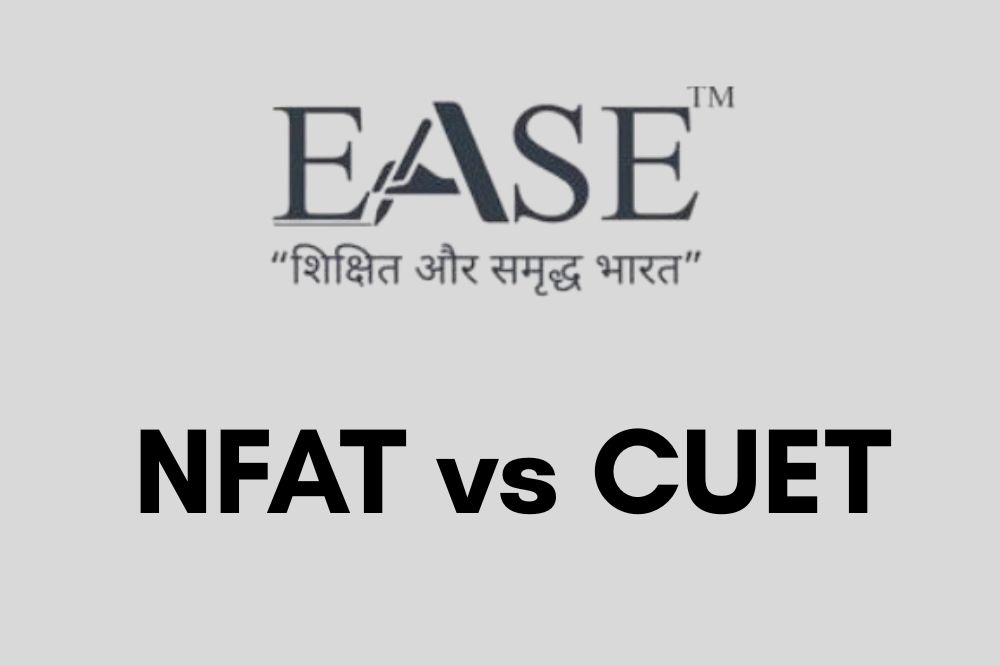Choosing the right entrance exam is a crucial step in shaping your academic future. Two emerging options in India—NFAT (National Forensic Admission Test) and CUET (Common University Entrance Test)—offer distinct pathways for students pursuing specialized or broad undergraduate programs.
Let’s break down the NFAT VS CUET differences, benefits, and preparation strategies so you can make an informed decision.
What Is NFAT?
NFAT is conducted by the National Forensic Sciences University (NFSU) for admission into:
- B.Sc. and M.Sc. in Forensic Science
- Cybersecurity, Criminology, Psychology, and related fields
- Integrated and doctoral programs
Key Highlights:
- Conducted by: NFSU (Central University under Ministry of Home Affairs)
- Mode: Computer-Based Test (CBT)
- Level: UG, PG, PhD
- Focus: Forensic, cyber, and investigative sciences
- Eligibility: Class 12 (Science stream preferred for UG)
Read More ICSE vs ISC
What Is CUET?
CUET is a national-level entrance exam conducted by NTA (National Testing Agency) for admission into:
- Undergraduate programs across 45+ central universities
- Courses in humanities, commerce, science, law, and more
Key Highlights:
- Conducted by: NTA
- Mode: CBT (Computer-Based Test)
- Level: UG & PG
- Focus: General university admissions
- Eligibility: Class 12 (any stream depending on course)
NFAT vs CUET: Quick Comparison Table
| Feature | NFAT | CUET |
|---|---|---|
| Purpose | Specialized forensic & cyber programs | General UG admissions across disciplines |
| Conducting Body | NFSU | NTA |
| Exam Level | UG, PG, PhD | UG & PG |
| Subjects Covered | Physics, Chemistry, Biology, Forensics | Language, Domain Subjects, General Test |
| Syllabus Base | Class 11 & 12 Science + Forensic topics | Class 12 NCERT-based |
| Universities Covered | NFSU campuses only | 45+ Central & State Universities |
| Exam Mode | CBT | CBT |
| Difficulty Level | Moderate (subject-specific) | Moderate to High (varies by stream) |
| Career Path | Forensic, Cybersecurity, Criminology | Diverse fields: Law, Science, Commerce |
Step-by-Step Guide to Choosing Between NFAT and CUET
Step 1: Identify Your Career Goals
- Want to pursue forensic science, cybersecurity, or criminology? → Go for NFAT
- Interested in arts, commerce, law, or general science? → Choose CUET
Step 2: Check Eligibility
- NFAT UG: Class 12 with Science (PCB/PCM)
- CUET UG: Class 12 in any stream (based on course)
Step 3: Understand the Exam Pattern
- NFAT: Subject-specific MCQs (Physics, Chemistry, Biology, Forensics)
- CUET: Section I (Language), Section II (Domain Subjects), Section III (General Test)
Step 4: Explore University Options
- NFAT: Admission to NFSU campuses only
- CUET: Admission to multiple central universities like DU, BHU, JNU, AMU
Step 5: Plan Your Preparation
- NFAT: Focus on forensic basics + Class 12 science subjects
- CUET: Strengthen NCERT concepts + practice aptitude and reasoning
Read More CBSE vs ICSE
FAQs: NFAT vs CUET
Q1. Can I apply for both NFAT and CUET?
Yes, if your interests span both forensic sciences and general UG programs.
Q2. Is NFAT tougher than CUET?
NFAT is subject-specific and moderate in difficulty. CUET varies depending on the stream and university.
Q3. Which exam offers more career flexibility?
CUET offers broader options across disciplines. NFAT is ideal for niche careers in forensic and cyber sciences.
Q4. Are both exams conducted online?
Yes, both are computer-based tests (CBT).
Q5. Which exam has more participating universities?
CUET covers 45+ universities, while NFAT is exclusive to NFSU campuses.
Final Thought
Whether you choose NFAT or CUET, the key is to align your exam with your career aspirations. NFAT is perfect for students passionate about forensic science and investigation, while CUET opens doors to a wide range of academic fields.
At EaseEdu, we help students make smart, strategic choices for their future. Need help preparing for either exam? Let’s build your roadmap to success.

